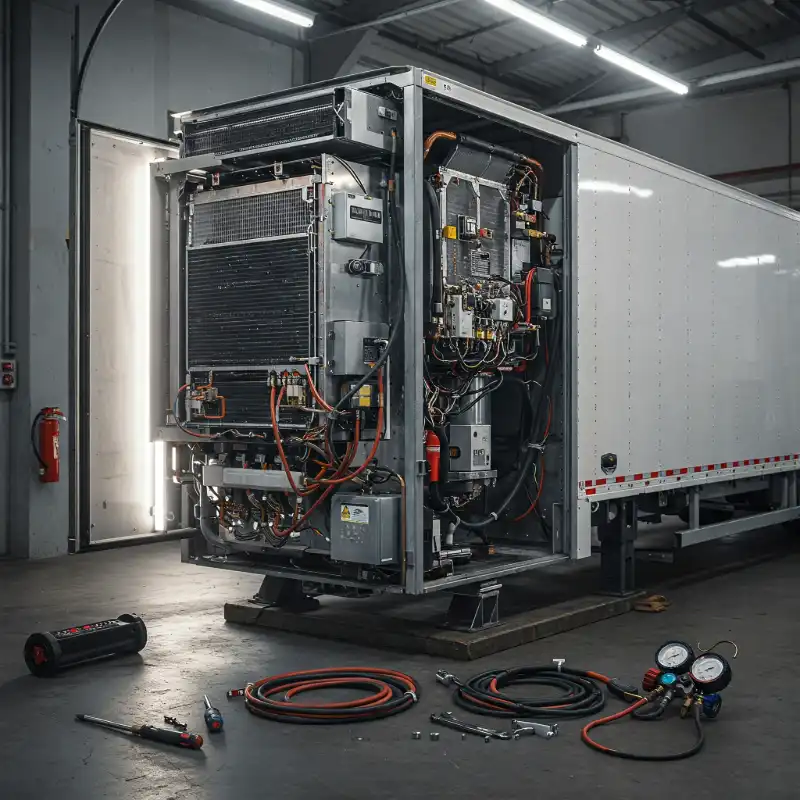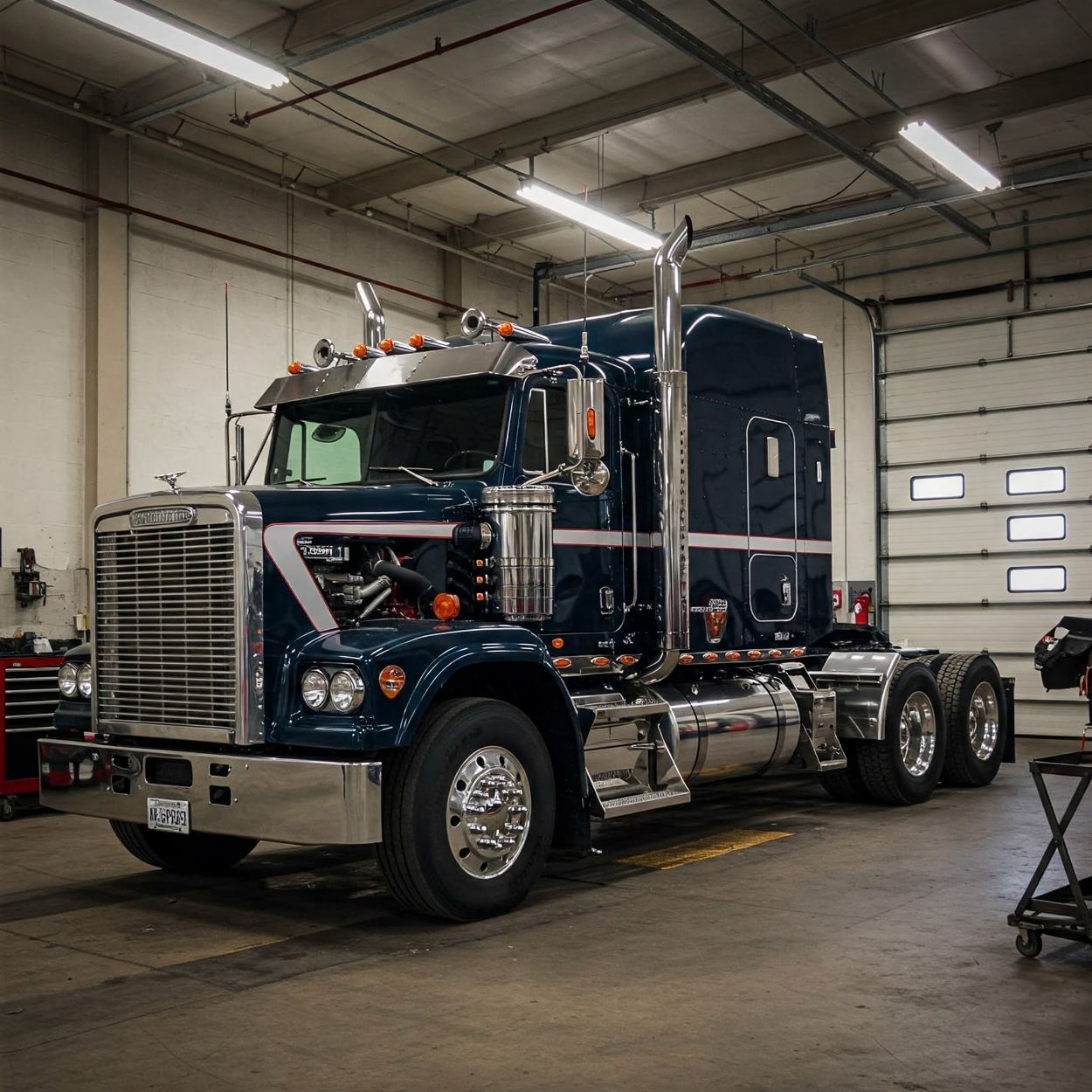
Introduction
Your heavy-duty truck's engine is a powerful workhorse that deserves proper care to ensure its longevity and lifespan. To help you understand the intricacies of truck maintenance, this blog will delve into the technical details of the necessary procedures for a healthy heavy-duty truck. By following these tips, you can extend the lifespan of your vehicle and enjoy a reliable performance for years to come.
Proper Lubrication for Engine Longevity
One crucial aspect of engine maintenance is ensuring proper lubrication. Engine oil serves as a protective barrier between moving parts, reducing friction and wear. However, not all engine oils are created equal. It's important to use the correct oil viscosity and quality as recommended by the manufacturer.
Engines operating in severe conditions, such as high temperatures or heavy loads, may benefit from synthetic oils. Synthetic oils offer superior resistance to breakdown, oxidation, and viscosity changes, ensuring better lubrication and protection even under extreme conditions. They also have better cold-weather performance, providing easier starts in frigid temperatures.
Routine oil changes are vital for maintaining optimal engine health. Over time, oil becomes contaminated with impurities, such as dirt, metal particles, and combustion by-products. These contaminants can compromise the lubrication properties of the oil and accelerate engine wear. Changing the oil and oil filter at regular intervals ensures clean and effective lubrication, promoting engine longevity.
The Importance of Coolant System Maintenance
The coolant system plays a critical role in maintaining the engine's operating temperature. Overheating can lead to severe engine damage, so it's essential to keep the coolant system in top shape. Regularly inspect the radiator for debris, such as leaves, bugs, or other obstructions that can impede airflow. Clean the radiator using compressed air or water to remove any blockages, allowing for efficient heat dissipation. Another often overlooked component is the water pump. The water pump circulates coolant throughout the engine, ensuring proper temperature regulation. Inspecting the water pump for leaks, damage, or worn-out bearings is crucial. Faulty water pumps can lead to inadequate coolant circulation and eventual engine overheating.
In addition to the radiator and water pump, it is vital to inspect the condition of the hoses and belts in the coolant system. Cracked or worn-out hoses and loose or damaged belts can lead to coolant leaks or improper coolant circulation. These issues can result in engine overheating and subsequent damage. Regular inspection and timely replacement of hoses and belts are essential to maintain a healthy coolant system.
The Role of Fuel System Maintenance
Fuel quality has a significant impact on engine performance and longevity. Contaminated fuel can cause injector clogs, reduced fuel efficiency, and increased wear on engine components. To safeguard your heavy-duty truck's engine, it's important to use clean fuel and adopt proper fuel system maintenance practices.
One way to ensure clean fuel is by installing high-quality fuel filters. Fuel filters trap contaminants, such as dirt, rust, and water, preventing them from reaching the engine. Regularly replacing fuel filters prevents these impurities from causing damage to the fuel injectors or other critical components.
Additionally, periodic fuel system cleanings can remove accumulated carbon deposits over time. Carbon deposits can hinder fuel flow and disrupt combustion, leading to decreased engine performance and increased fuel consumption. Professional fuel system cleanings help restore optimal fuel delivery and combustion efficiency, promoting engine longevity.
The Significance of a Healthy Engine
A reliable engine is of utmost importance for a heavy-duty truck for several reasons. Firstly, heavy-duty trucks are designed to handle demanding tasks, such as hauling heavy loads over long distances, and a reliable engine ensures efficiency in such challenging conditions. A dependable engine minimizes the risk of breakdowns, which can result in costly delays, loss of productivity, and potential safety hazards. Additionally, a powerful and dependable engine enables the truck to maintain consistent speed and power, facilitating smooth acceleration and deceleration, thus enhancing driver control and safety. Ultimately, a reliable engine is essential for heavy-duty trucks to operate efficiently, maximize productivity, ensure safety, and minimize operational costs.
Conclusion
Your heavy-duty truck's engine is a complex and robust piece of machinery that requires proper care to ensure its longevity. By understanding and implementing these technical tips, you can extend the lifespan of your heavy-duty truck's engine and enjoy reliable performance for many miles to come.
Remember to use the recommended oil viscosity and quality, schedule routine oil changes, and maintain a clean and efficient coolant system. Ensure clean fuel and invest in high-quality fuel filters while considering periodic fuel system cleanings. By paying attention to these technical details and providing regular maintenance, you can maximize the lifespan of your heavy-duty truck's engine, reduce the risk of costly breakdowns, and enjoy a smooth and efficient performance on the road. A little extra effort in maintenance goes a long way in safeguarding your heavy-duty truck's investment.
More Articles


7 Errors in Refrigerated Truck Maintenance and Their Fixes
7 Errors in Refrigerated Truck Maintenance and Their Fixes
Avoid costly breakdowns and cargo loss with proper refrigerated truck maintenance. Learn about the top 7 reefer maintenance mistakes and how to fix them.


What Are the Benefits of Telematics in Managing Food Delivery Fleets?
What Are the Benefits of Telematics in Managing Food Delivery Fleets?
Discover how telematics can optimize your food delivery fleet in Texas. Reduce fuel costs, improve efficiency, enhance safety, and ensure faster deliveries with real-time tracking and smart analytics.


How to Reduce Fuel Costs in Your Grocery Delivery Fleet
How to Reduce Fuel Costs in Your Grocery Delivery Fleet
Discover effective ways to cut fuel costs in your grocery delivery fleet with tips on maintenance, route optimization, and technology in Texas.
